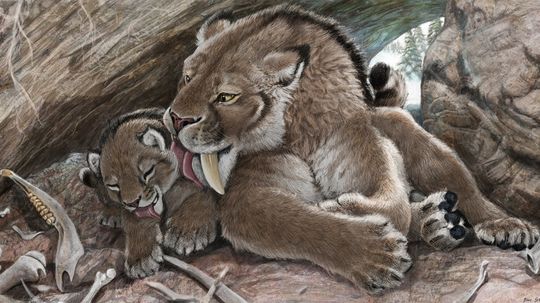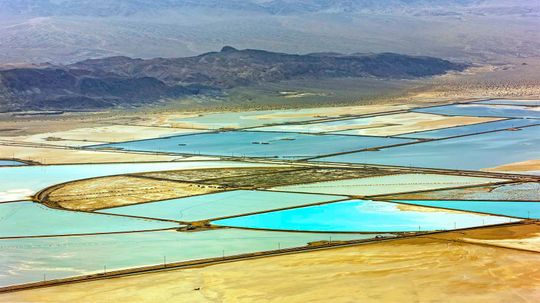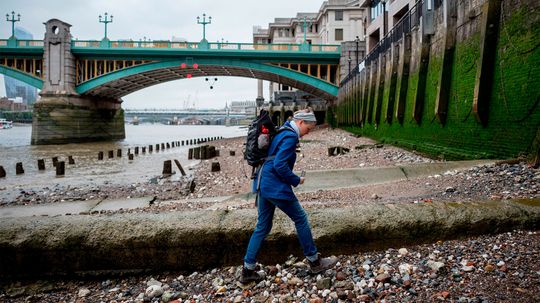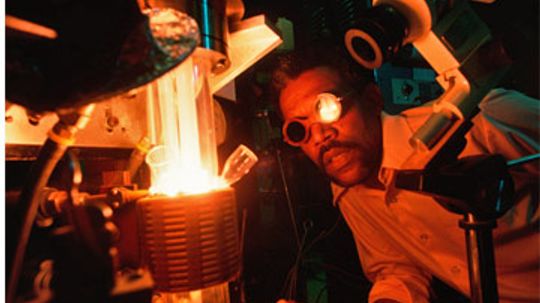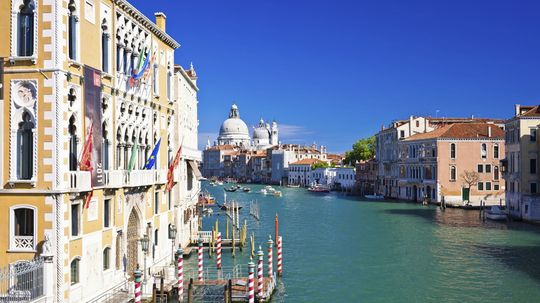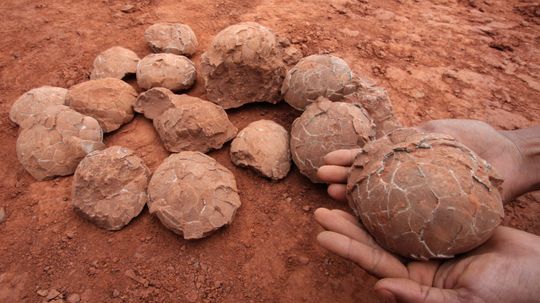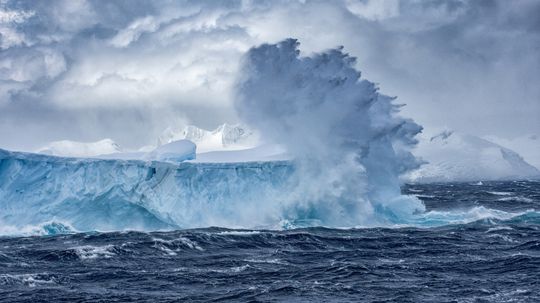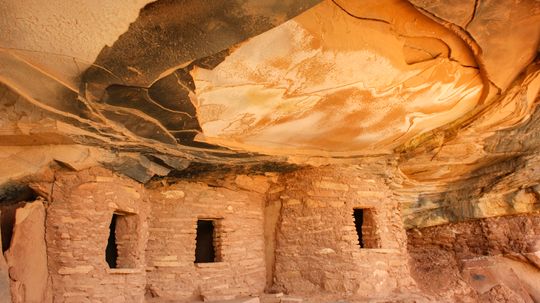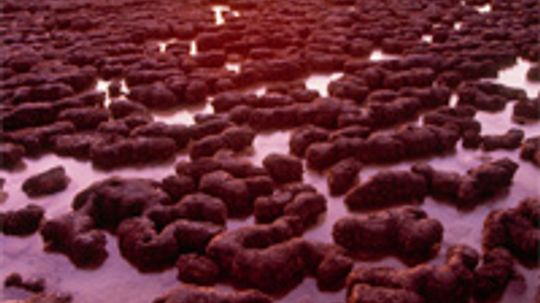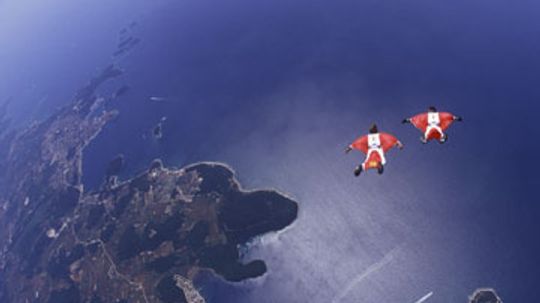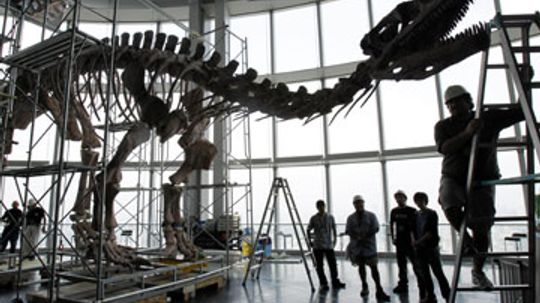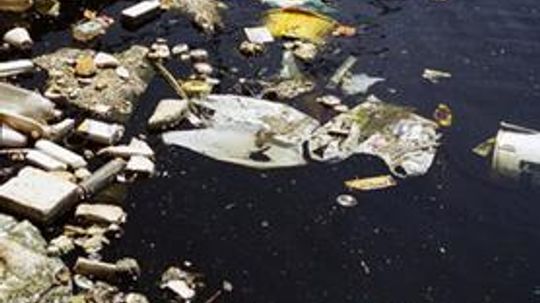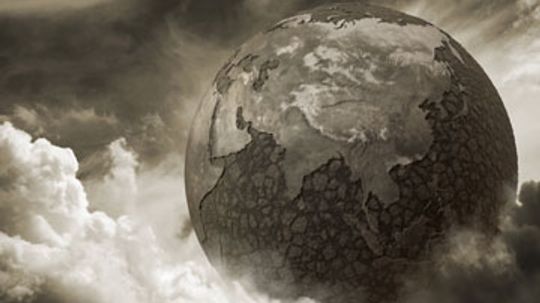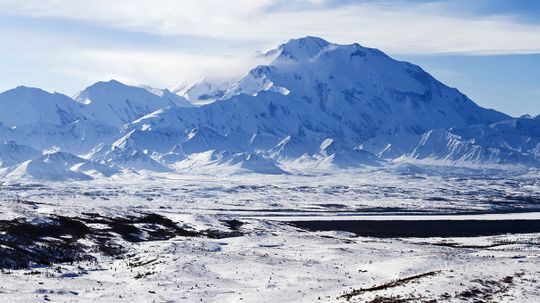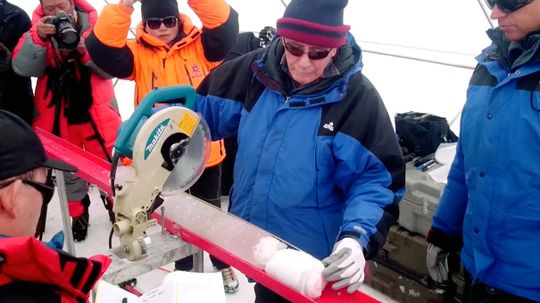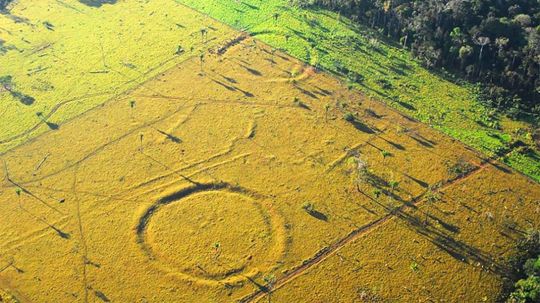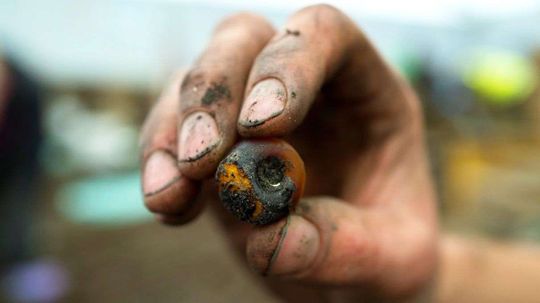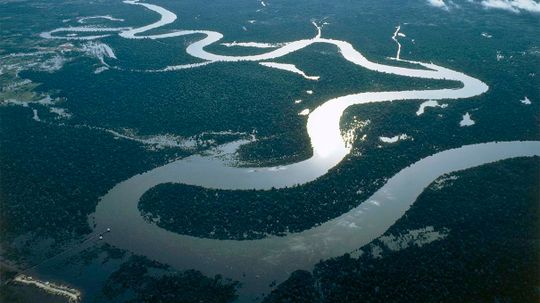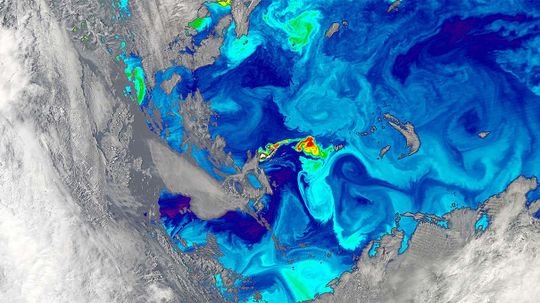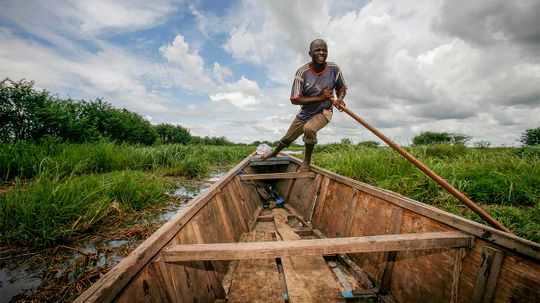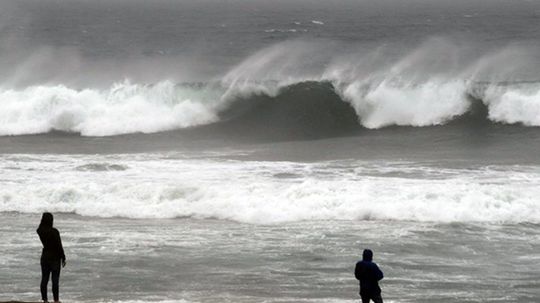Earth Science
Earth Science covers all facets of how the earth works, from from volcanoes to the world's oceans.
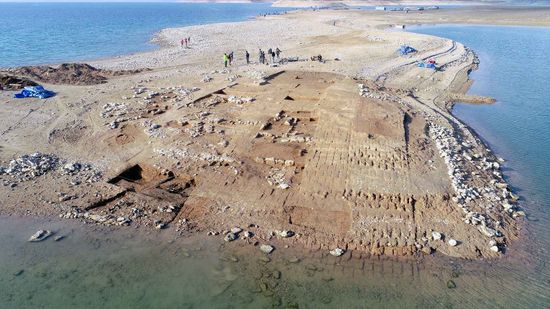
Worldwide Droughts Uncover Ancient Relics, Ruins and Remains
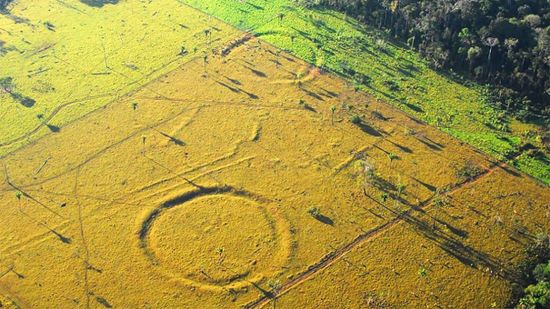
450 Huge Geometrical Earthworks in the Amazon Hint at Past Civilizations

Ancient Egyptians Believed Cats Had 'Divine Energy'
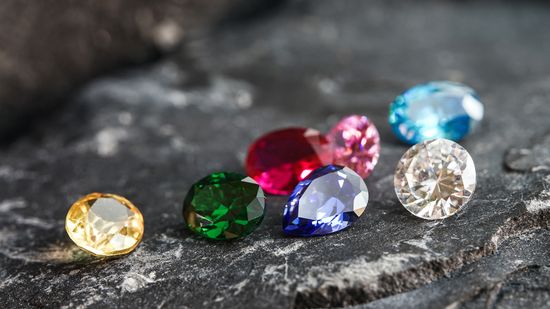
15 Types of Gemstones to Add a Little Sparkle to Your Life
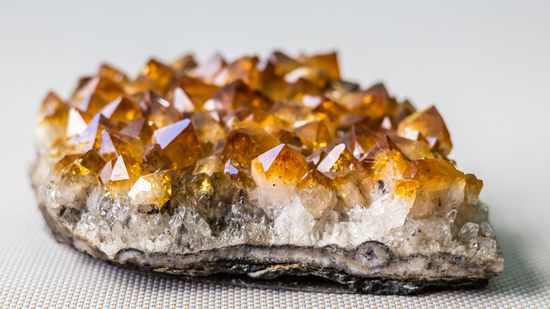
13 Brown Gemstones for Understated Elegance

10 Red Gemstones That Evoke Power and Bold Luxury

10 Longest Rivers in the U.S.: From the Missouri to the Brazos

What Is the Smallest State in the USA? Looking at Area and Population
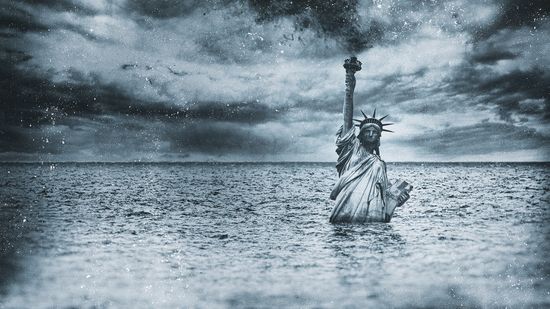
Venice Isn't Alone: 7 Sinking Cities Around the World
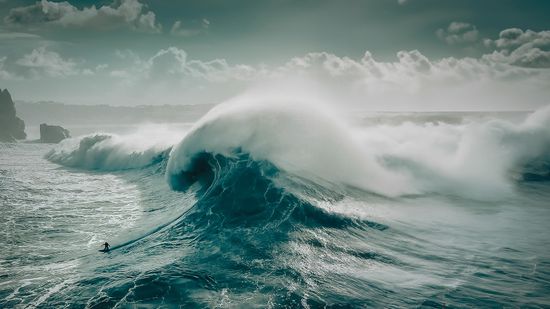
What Was the Largest Wave Ever Recorded?
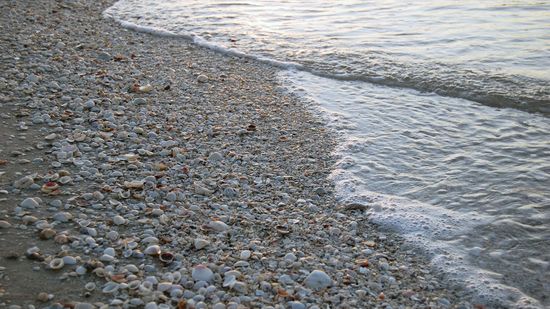
Where Have All the Seashells Gone?
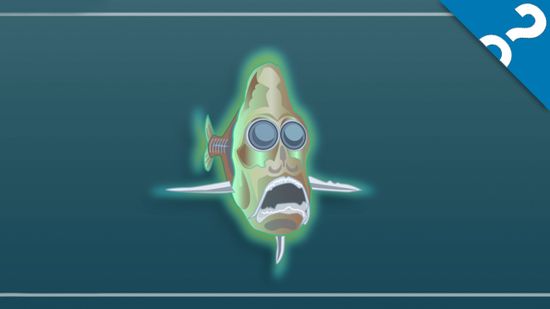
HowStuffWorks: 10 Weird Sea Creatures
Learn More / Page 7
Researchers discovered that everyone's favorite prehistoric cat had some seriously big bones - even as a youngster.
By Robert Lamb
The element lithium is one of just three created during the Big Bang and has been used for mental health care for decades. But now it's in higher demand than ever before.
Does searching through the mud of a riverbank for treasures of old sound like a fun way to spend a day? If so, you may just be a true mudlarker at heart.
Advertisement
From the Hope diamond to the shiny bits in instant coffee, crystals have always held the power to fascinate us humans. Are they more than just a bunch of pretty facets?
The oceans are rising, and they're threatening to take down some of the world's brightest cultural gems. Here are 10 of the most notable spots endangered by climate change.
By Chris Opfer
You likely heard that paleontologists uncovered a cache of dinosaur embryos, bone fragments and eggshells in China. You also may recall that we've made crazy leaps forward in genetics and genomics. Can we put the two together and create a dinosaur?
We argue that living well requires wine and cheese, but what does living at all require? You might be surprised to find out that there's no single definition.
Advertisement
To say geologic time moves at a snail's pace is an insult to snails. Our planet's continents are always in flux: Could a new ocean grow amid those incredibly slow changes?
Have you ever read "Journey to the Center of the Earth" and wondered if it were possible to do it? Well, scientists are in the process of giving it their best shot. How hard is it to dig a hole this deep, and what might they find?
Anthropologists specialize in, well, us. But studying humankind doesn't mean you have to hole up in a library or laboratory. Take a peek at this article to learn more about the dynamic, enriching field of anthropology.
When it comes to fossils, specimens like Sue the Tyrannosaurus rex grab much of the attention. And while Sue is a staggering 67 million years old, she's a new kid on the block, compared to some of the oldest fossils ever found. What's older than Sue?
Advertisement
Archaeologists dig up and study the material remains of human civilizations. Bioarchaeologists do the same thing, except they focus on the remains of, well, us. What's the big deal about old bones and teeth?
Of course you know what gravity is. It's the force behind Wile E. Coyote plummeting off the face of a cliff and you stumbling spastically in front of your crush. But did you know it can bend light and help us detect hidden cosmic phenomena, too?
By Robert Lamb
Crack open any science textbook and the authors will tell you that such things don't happen. So how did a couple of paleontologists and an acid bath turn that widespread belief on its head?
By Robert Lamb
The Pacific Ocean trash vortex is explained in this article. Learn about the Pacific Ocean trash vortex.
Advertisement
You may have noticed that our planet isn't terribly predictable. Could a German polymath and an unfathomable pile of data change that?
By Robert Lamb
If geology has taught us anything about Earth's history, it's that nothing is permanent. And that goes for mountain ranges, all of which are constantly rising and falling.
By Mark Mancini
For centuries, ancient cultures celebrated the winter solstice, the shortest day of the year, as the "day the sun came back." Here are five enlightening facts about the winter solstice.
Scientists from The Ohio State University have drilled longest ice core from outside the poles.
By Mark Mancini
Advertisement
Although the trenched enclosures were probably used to conduct rituals, they can tell us how the ancient indigenous people of the Amazon managed their forests.
The perfectly preserved remains of a 3,000-year-old settlement called Must Farm provide a window into the lives of the Bronze Age Britons.
Ever wondered what's the difference between a river, a stream, a brook and a tributary?
By Amanda Onion
Ocean water is not actually blue, but appears in different shades for many reasons.
By Amanda Onion
Advertisement
The Sahara has expanded by about 10 percent in the past century, mostly due to natural causes, but not all. We can blame the rest on man-made climate change.
Climate change may be melting glaciers, but it's also reducing the oxygen of the world's oceans. Without oxygen, many marine organisms may no longer be able to survive.
